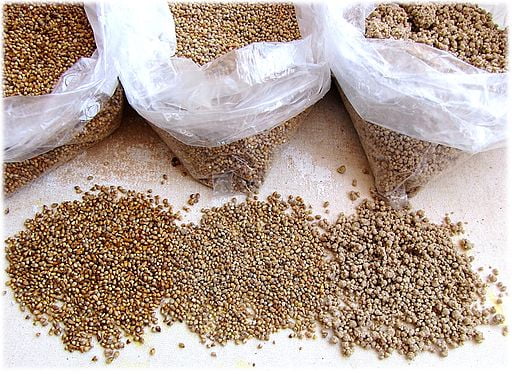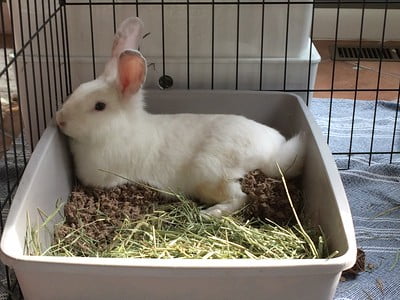Last Updated on March 8, 2023 by Marjon Ramos
Rabbits dig holes for a variety of reasons. Like when they’re trying to hide from predators, to protect their kits, to hide their food or resources, and to protect themselves from the elements.
But when a rabbit fills the holes after digging them, most of the time it’s to hide something like their kits or resources. Rabbits do this so that potential predators won’t be able to easily spot and smell where their kits are.
Now that I’ve given you the gist of the article, read on as I explain in more detail why rabbits dig holes and then fill them in:
Table of Contents
Reasons why rabbits dig holes.
It’s instinctual for rabbits to dig holes. Wild rabbits live underground to hide from predators and protect themselves from the elements.
Here are the most common reasons why rabbits dig holes:
Rabbits dig holes to hide from predators.
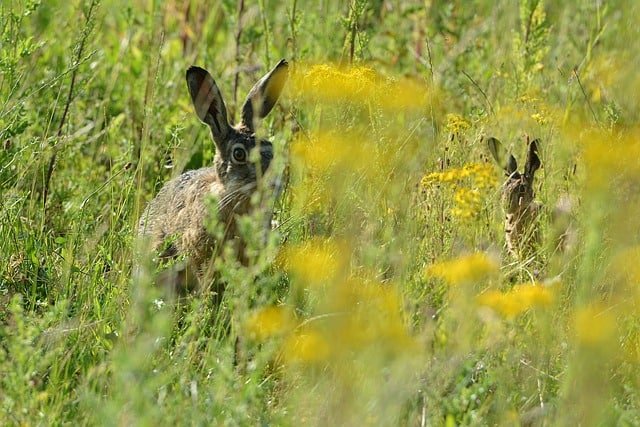
Wild rabbits have it tough. Being at the bottom of the food chain, dangers are in every direction. That’s why wild rabbits develop two skills to level the playing field.
One is to run away at the first sign of danger. And the other one is to hide in places where their biggest predators can’t easily reach them, like underground, for example.
Rabbits dig holes to protect their kits from predators.
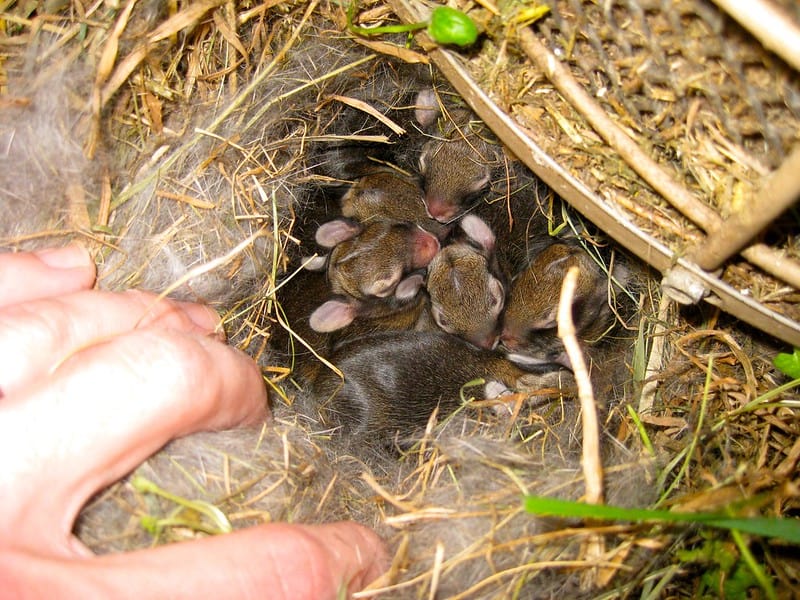
Pregnant rabbits will dig holes a few days or weeks before giving birth. This is called nesting behavior. Rabbits do this to prepare the place where their kits will be protected from the elements and to hide from predators.
Pregnant doe would also pluck some of its furs as bedding inside the nesting hole to provide warmth to their kits. Newborn kits don’t have any fur and are susceptible to hypothermia.
Rabbits dig holes depending on the climate.
Rabbits also dig holes in the winter to protect themselves from the cold. Usually, rabbits would dig deeper holes in the colder climate and shallower holes in the summer.
Why do pet rabbits suddenly dig in their cages?
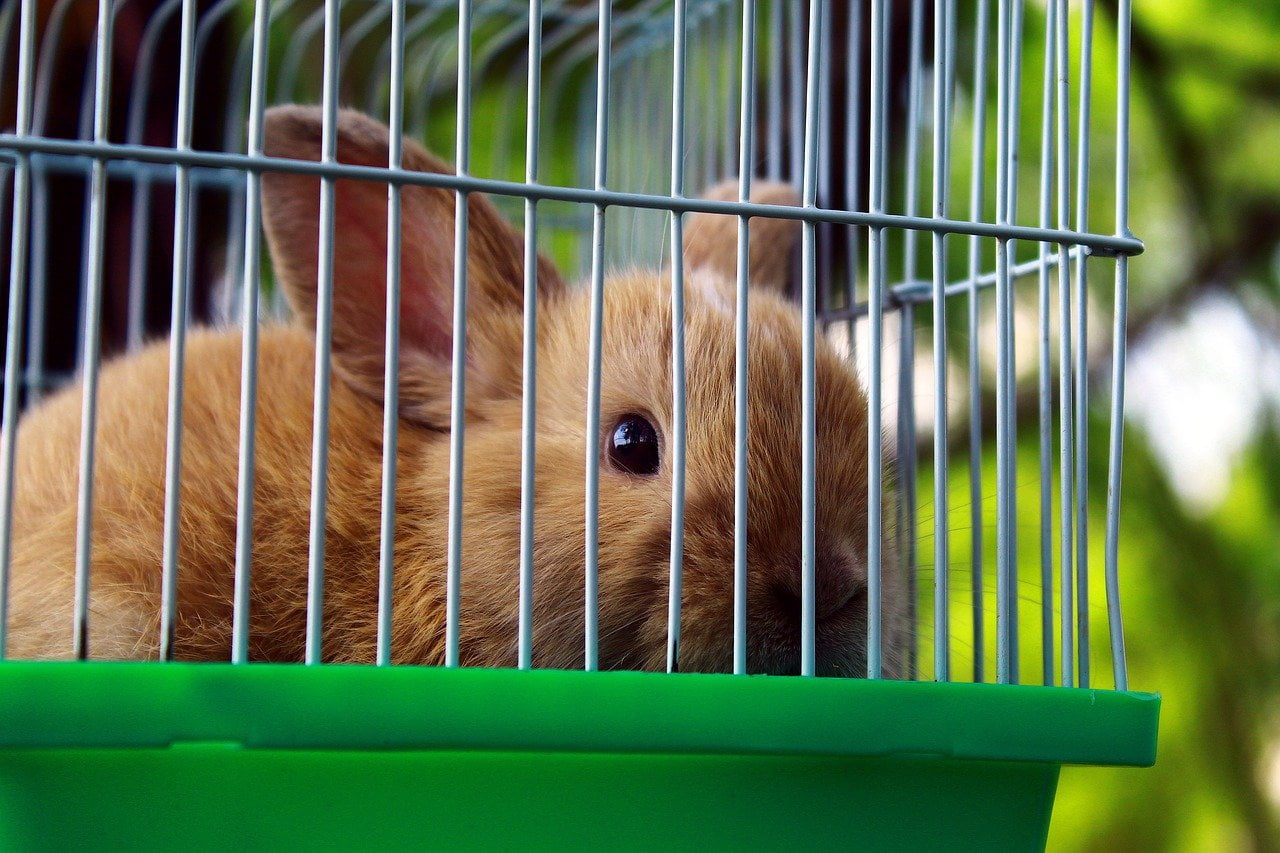
While pet rabbits don’t need to dig holes to protect themselves, their instinct to do so could tell us a lot.
Your rabbit might be pregnant.
One of the signs that your rabbit is pregnant or near labor is when they’re trying to dig in their cage or hutch. This instinct is called the nesting behavior, and it’s your cue that you need to provide them with a nesting box.
Your rabbit is frustrated.
Frustrated rabbits could also dig in their cage due to boredom or lack of enrichment like toys.
Rabbits are built to wander around nature. Enclosing them in small cages all day without exercise would eventually lead to frustration and destructive behaviors.
You can mitigate this behavior by providing adequate space for your rabbits and providing enrichments like toys and treats. You should also allow your rabbits to play on their own or exercise for a few hours every day.
Your rabbit is not neutered.
Unneutered rabbits would also show instinctual behaviors like digging after reaching sexual maturity. Digging is usually accompanied by other destructive behaviors like spraying and biting.
Always neuter your rabbits before they reach sexual maturity to avoid these destructive behaviors. This is especially important if you have two or more rabbits, because unneutered rabbits are prone to fighting.
Should you stop your rabbit from digging holes?
This would depend on you if you’re okay with your rabbits digging holes in your yard. As we discussed earlier, rabbits dig holes instinctively, meaning it’s in their nature to dig and hide.
If you want to limit this behavior in your rabbits, you should get them neutered before they reach sexual maturity. Doing so could calm your rabbit’s destructive instincts.
How to stop wild rabbits from digging holes in your lawn.
To stop wild rabbits from digging holes in your lawn, you must show them that your lawn could potentially harm them if they come near it.
You can try the following to stop wild rabbits from digging holes in your yard:
Get a dog.
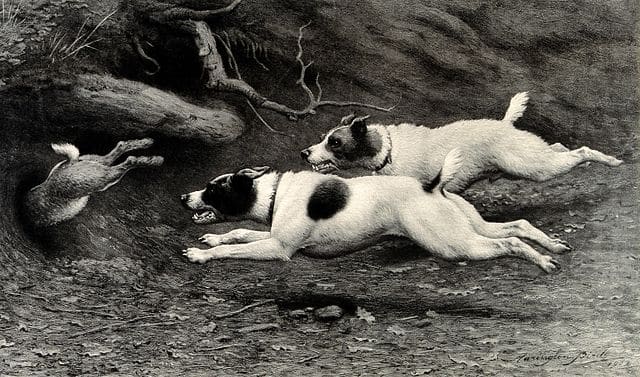
A dog would naturally chase off any rabbits that came near their territory. Dogs will also pee all over your yard to mark their territory.
This, in turn, would repel any wild rabbits. Wild rabbits would usually avoid areas where potential predators would live.
Plant some rabbit repellant plants.
You can also plant flowers and vegetables that have a strong smell, like garlic, onions, marigolds, and lavender, to keep rabbits off your lawn. Rabbits have sensitive noses and would never live in an area where their noses would be constantly irritated.
Use mock animal statues to scare off rabbits.
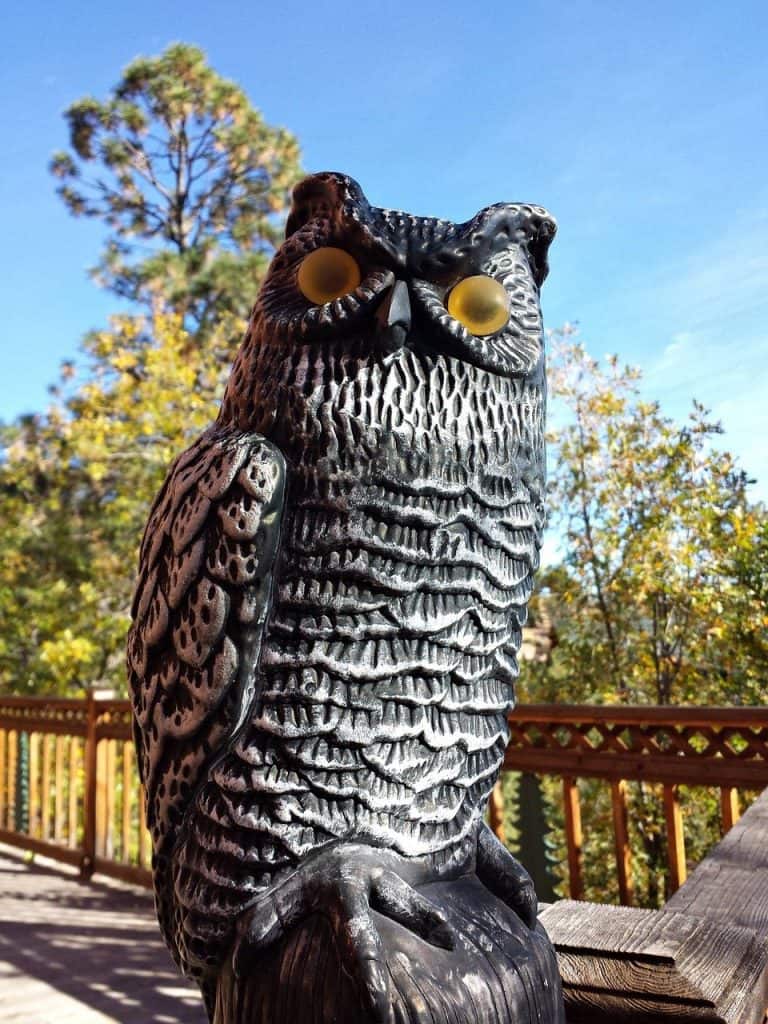
Using mock animal statues could also work to scare off wild rabbits. This works because rabbits have great eyesight and can spot a potential predator from far away.
The best mock animal statues that would scare off wild rabbits are the ones that are natural prey for rabbits. This includes hawks, falcons, kestrels, and owls.
Use natural repellents like chilly powder and peppers.
You could also scatter some natural rabbit repellants like chilly powders and peppers on your lawn. Rabbits hate the smell of peppers and chilly powders; it can even irritate their noses and eyes.
Conclusion
Wild rabbits will usually dig holes and fill them in whenever they want to hide their kits from predators. Digging holes then covering them up would also protect their kits from the elements and provide additional warmth.
Digging holes then filling them in would also hide their baby’s smell from predators, making their baby’s survival rate higher.
Cite this article:
Related Articles
- Can Rabbits Eat Asparagus? 9 things you need to know.
- Can Rabbits Eat Tomatoes? What You Need To Know.
- Can Rabbits Eat Watermelon? What You Need To Know.
- Can Rabbits Eat Grapes? What You Need To Know.
- Can Rabbits Eat Broccoli? What You Need To Know.
- Can Rabbits Eat Apples? What You Need To Know.
- Can Rabbits Eat Cabbages? What You Need To Know.
- Can Rabbits Eat Strawberries? What You Need To Know.
- Can Rabbits Eat Bananas? What You Need To Know.
- Can Rabbits Eat Oranges? 9 things you need to know.
- Can Rabbits Eat Blueberries? Here’s Why.
- Can Rabbits Eat Spinach? Your Questions Answered.
- Can Rabbits Eat Cucumbers? Here’s Why.
- Can Rabbits Eat Celery? What you need to know.
- Can Rabbits Eat Radishes: Everything You Need To Know
Sources
- Buseth, Marit Emilie., and Richard A. Saunders. Rabbit Behaviour, Health, and Care. CABI, 2014.
- Lebas, F. The Rabbit: Husbandry, Health, and Production. Food and Agriculture Organization of the United Nations, 1997.
- Patry, Karen, et al. The Rabbit-Raising Problem Solver: Your Questions Answered about Housing, Feeding, Behavior, Health Care, Breeding, and Kindling. Storey Publishing, 2014.
- How to Build a Nesting Box

